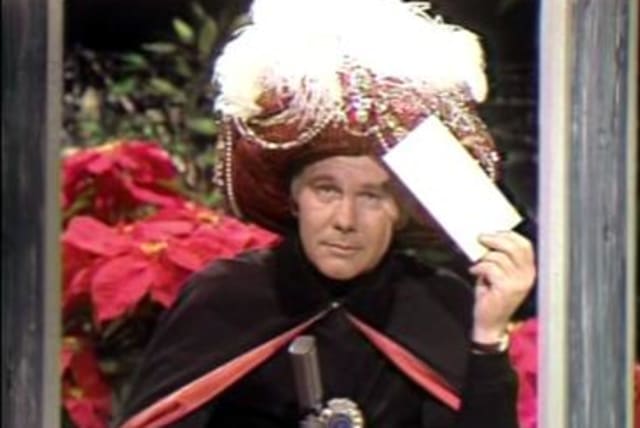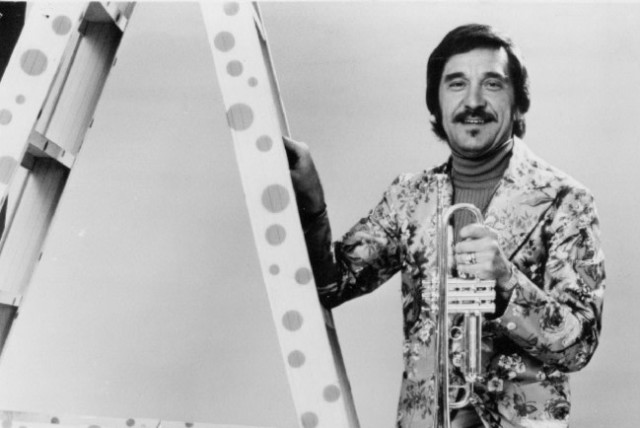'It's Not B'Seder': Injecting some fun into Passover - review

It’s Not B’Seder, which in Hebrish (Hebrew-English) means “It’s not okay,” can also mean “It’s not in the Seder.” Strictly speaking, the content in the book is not part of the Seder ritual.
For 15 years, entrepreneur Gary Swickley has been integrating humorous and original content – songs, poems, and rhymes – into his family’s Seder.
This year, in a slim hardback 64-page book titled It’s Not B’Seder, Beit Shemesh-based Swickley has decided to share his texts with the general public. His original content includes Passover-themed limericks; parodies of passages from Dr. Seuss; rhymes; riddles based on the format popularized by the “Carnac the Magnificent” segments from The Tonight Show Starring Johnny Carson; top 10 lists inspired by the comedy format from Late Night with David Letterman; song parodies, and original poems.
It’s Not B’Seder, which in Hebrish (Hebrew-English) means “It’s not okay,” can also mean “It’s not in the Seder.” The book’s cover, with its tantalizing headlines such as “When ALL of Dayenu Is Just Not Enough” and “The FIFTH Question: The one that the Rabbis are afraid you would ask” hints that this Seder supplement is not to be taken entirely seriously. Strictly speaking, the content in the book is not part of the Seder ritual. It’s Not B’Seder does not include the text of the Haggadah but is intended to complement its recitation for those who want to add a dash of humor and wit to their family Seder.
Swickley’s text appears in a large and friendly typeface, akin to the font used in many children’s books, and is accompanied by creative black-and-white drawings that adroitly express the ideas and sentiments of the accompanying text.
The book’s combination of irreverence and humor, such as in the chapters “Top Ten Plagues Not Mentioned in the Bible” and “Green Eggs and ‘Chametz,’” is a potent mix that can keep the participants in the Seder on their toes and in a good mood.
A comedic riff on the Passover Seder
While those familiar with the Passover rituals will have no difficulty understanding and appreciating its content – provided they have a sense of humor – first-time Seder guests will also enjoy the book’s bold and cheeky style. Leaders may choose to pause the Seder to insert material from the book or leave it on the table for participants to discover on their own.
“Should We Stay or Should We Go,” Swickley’s parody of The Clash’s rock classic “Should I Stay or Should I Go,” to describe the departure of the Jewish people from Egypt at the time of the Exodus, can certainly help participants get into the spirit, as will “Seder Nights” (the parody of “Summer Nights,” from the soundtrack of Grease) that recounts the Passover story,
It is clear that Swickley derives his inspiration from the music and media of his youth – the film Grease was released in theaters in 1978; “Should I Stay or Should I Go” was written in 1981; The Tonight Show Starring Johnny Carson aired its final episode in 1992; and the final episode of the Late Show with David Letterman was in 2014. Rather than taking material from more contemporary music, current television programs, or even Internet memes, the author decidedly chose to take material from his past. But perhaps that’s a good thing – after all, part of Passover is teaching our children that events that took place long ago can be meaningful and significant.
Swickley’s riffs on the timeless Dr. Seuss are clever.
“I won’t eat chametz with the wine, although the Merlot is just divine,” and “Not with chrain! Not in a shul! Not in a car! That won’t be cool” are just a few, and the limericks are amusing and will doubtless bring a smile to readers’ faces.
The book’s Top 10 lists range from “Top Ten Expressions Never Heard at a Seder Ever” to “Top Ten Reasons why the Nation of Israel Wanted to Leave Egypt,” and can be challenging. Three answers are provided for each riddle, and readers are challenged to solve the three questions, Jeopardy style. To wit: “Answer: Moses’ arms during the war, plague of darkness, and the results of grating horseradish” or “Joseph’s landing spot, precursor to learning, and a Red Sea Trick.”
While the rhyming scheme in the book can seem a bit forced at times – “There once was a man named Moses, whose grandfather the king made him brogez” [angry], it is clear that the author derived a great deal of pleasure in creating this work.
The drawings in the book are creative and evocative, but had they been printed in full color, they would have been even more arresting and eye-opening. It’s Not B’Seder would also have benefited from a table of contents – and there is room for additional material in future versions.
Swickley says that injecting humor into the Passover tradition adds to the feelings of liberation and freedom at his family’s Seder.
Passover is one of the most meaningful holidays on the Jewish calendar, and if adding a bit of levity will enhance the appreciation of participants at the Seder, then it is certainly more than OK – and quite “b’Seder.”
- IT’S NOT B’SEDER
- By Gary Swickley
- Gary Swickley
- 68 pages; $20
Jerusalem Post Store
`; document.getElementById("linkPremium").innerHTML = cont; var divWithLink = document.getElementById("premium-link"); if (divWithLink !== null && divWithLink !== 'undefined') { divWithLink.style.border = "solid 1px #cb0f3e"; divWithLink.style.textAlign = "center"; divWithLink.style.marginBottom = "15px"; divWithLink.style.marginTop = "15px"; divWithLink.style.width = "100%"; divWithLink.style.backgroundColor = "#122952"; divWithLink.style.color = "#ffffff"; divWithLink.style.lineHeight = "1.5"; } } (function (v, i) { });

